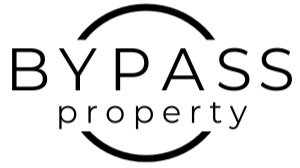Part 3. How to treat property investments like a business - Teamwork
This is part 3 in our series on How to treat your real estate investments like a business. If you haven't already, we suggest you first read Part 1. Where most investors fail and Part 2. Mindset.
Step 5. Build a team
As good as your new education will be, you still shouldn't try to do it all yourself. Remember those professionals from the last segment who've spent years learning and refining their skills? Well now is the time to get them on your side. No business person succeeds on their own and you shouldn't try to either. Engaging a professional team to work for you expands your knowledge exponentially.
Some of the core members of your team include:
An Advisor
Your adviser will help you establish your goals and map out your plan to achieve them. They will help you to stay on track and guide you through the inevitable ups and downs of investing. There are many professional advisers available and each will bring their own strengths and weaknesses. Make sure you select someone who really understands realestate and that isn't trying to sell you something. You're unlikely to get good advice from someone who stands to benefit from your choices.
Buyers Agent
Buyers agents work for the buyer in a property exchange the way that a seller will engage a real estate agent. The use of a Buyers Agent in property transactions has grown in popularity over the last few years and they can be a valuable member of your team. A good buyers agent should have an in depth understanding of the market and of real estate investing which will save you a significant amount of time and money. As the use of buyers agents has grown in popularity, so too has the amount of people wanting to get into the role so make sure you check the credentials and track record of anyone you engage.
Mortgage Brokers
I'm not sure why anyone would go directly to their bank to apply for a home loan when you can have the expertise of a skilled mortgage broker on your side. Real estate investing is a game of finance and a mortgage broker can help you navigate and structure your finances in the best way to maximise your goals. Generally they won't cost you anything as well (at least out of pocket) as they receive a commission from the banks for establishing the loan. The commission will be disclosed to you for transparency but the money a good broker will save you will easily cover this cost.
Property Manager
I love my Property Managers. They make real estate investing so much easier as they manage all of the day to day operations. Of course if you have one or two investment properties you can choose to manage them yourself (I would highly recommend using the ByPass Investor Self-Manage portal to make your life much much easier). But if you're serious about building a substantial portfolio then you're going to need these superstars on your side when you start getting a larger asset base. Not all property management agencies are created equal and this is another one of those times where trying to save a few dollars by going cheap is likely to cost you much more in the long term. So do your research and choose wisely.
Insurance Broker
One of the key ways that you'll protect yourself and your investments is through insurance and an insurance broker will help to make sure you're properly covered. They'll also shop around on your behalf so you get the best deal. I guess you can use one of those websites to compare different plans but these people live and breath insurance every day and will happily take the hard work out of it for you.
Accountant
Savvy investors understand the impact that tax has on their investments. They seek out the services of a good accountant who can navigate the complexities of tax laws to make sure you not only stay on the right side of them but maximise these returns. I'm also yet to meet an accountant who doesn't like talking about structuring and asset protection so make sure you have a long conversation about the best setup for your personal circumstances.
Solicitor/Conveyancer
A solicitor or conveyancer will help you navigate the purchase of your property. They complete essential checks over the title of your property and review the sale contract to make sure everything looks legal and there are no red flags. They take the hard work out of the settlement process so you can relax and celebrate your new investment. They also have some cool tricks to help you get creative with purchases. We'll cover these in more detail in a future article.
It's also worth consulting with your Solicitor early on around structure and asset protection strategies. They will set up the legal entities you desire so that they're ready for your purchase.
Building and pest inspector
Investing in a building and pest inspection is always a good idea. While they won't be able to tell you everything, for a few hundred dollars you can get some peace of mind that your investment in sound shape and unlikely to fall apart (or you can walk away if it looks like it might). Most will give you a call after conducting the report to run you through everything covered. Some states require the seller to organise this prior to listing the property for sale. If that's the case, you''ll be able to get a copy through the agent.
Quantity Surveyor
Do yourself and your accountant a favour and engage a professional quantity surveyor to prepare a depreciation schedule for your property. The schedule outlines the depreciation that can be claimed against the property each year, essentially improving your cashflow. It will cost you a few hundred dollars to have a quantity Surveyor prepare this for you but the price will be offset by your increased tax return.
Step 6. Keep good records Being organised doesn't come naturally to everyone but is an essential skill for all investors to learn. You're accountant and property manager will be able to help you along the way, but ultimately the more organised you are the easier it will be to manage your properties and prepare your tax returns. The ATO frequently target property investors in their audits so it's important to have a good record keeping system so you can stay on their good side.
Australia's tax laws are complicated and regularly updated so it's definitely worth having a good accountant to help you navigate them. Just make sure you keep records of any expenses or income relating to your property in an organised system to help them out. This is one area where a little work upfront to set up a record keeping system will pay dividends down the track.
Make sure you check out Part 4 of this series - Management


